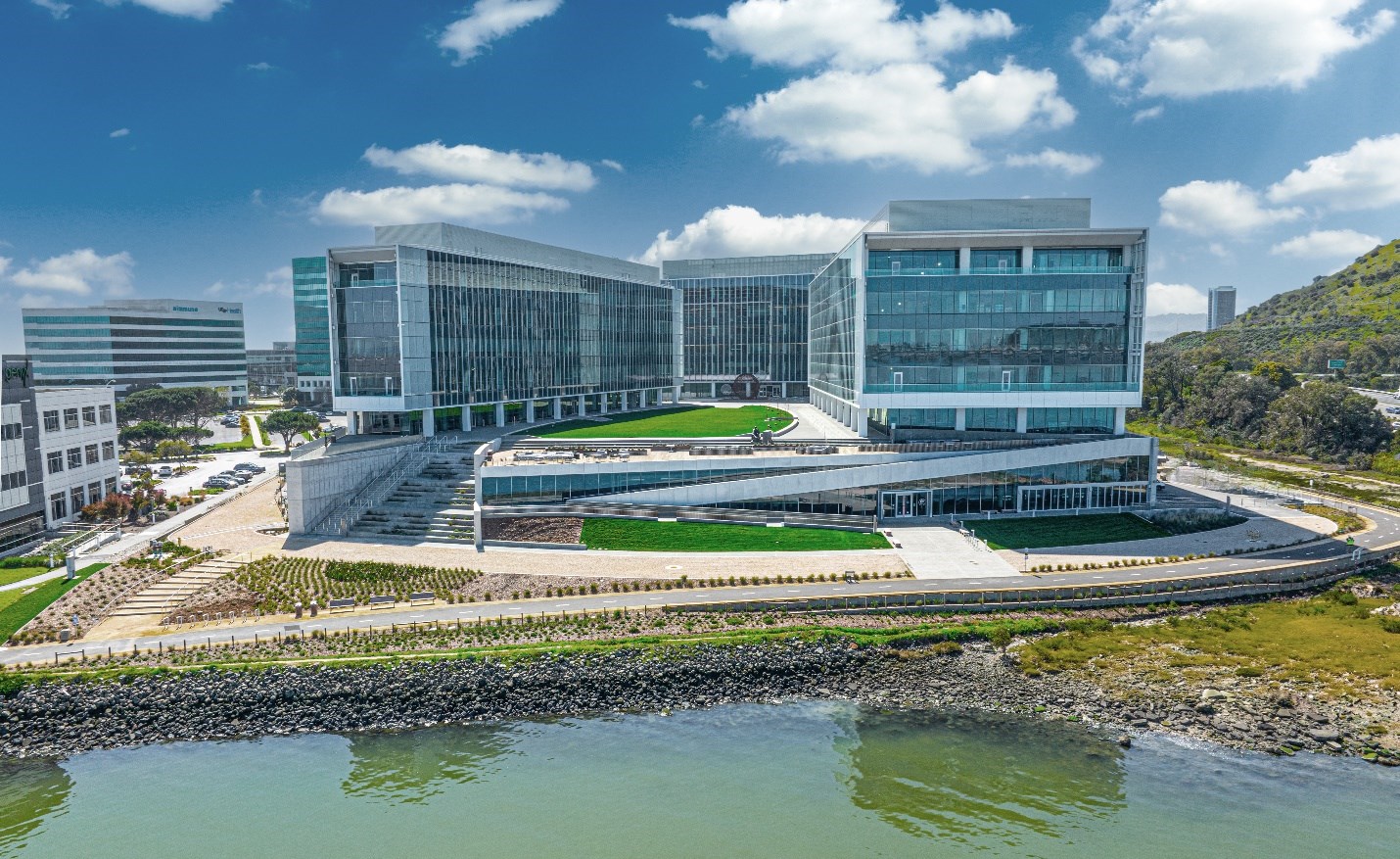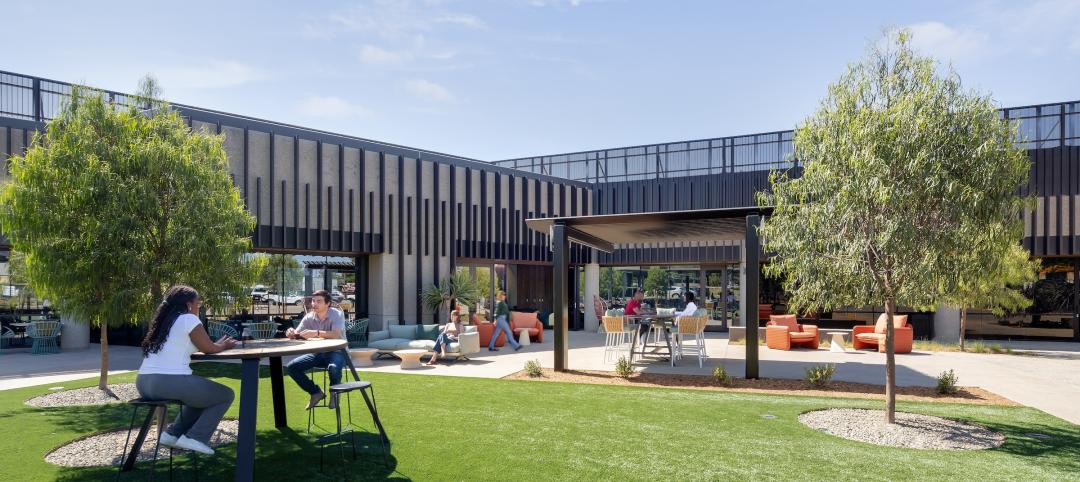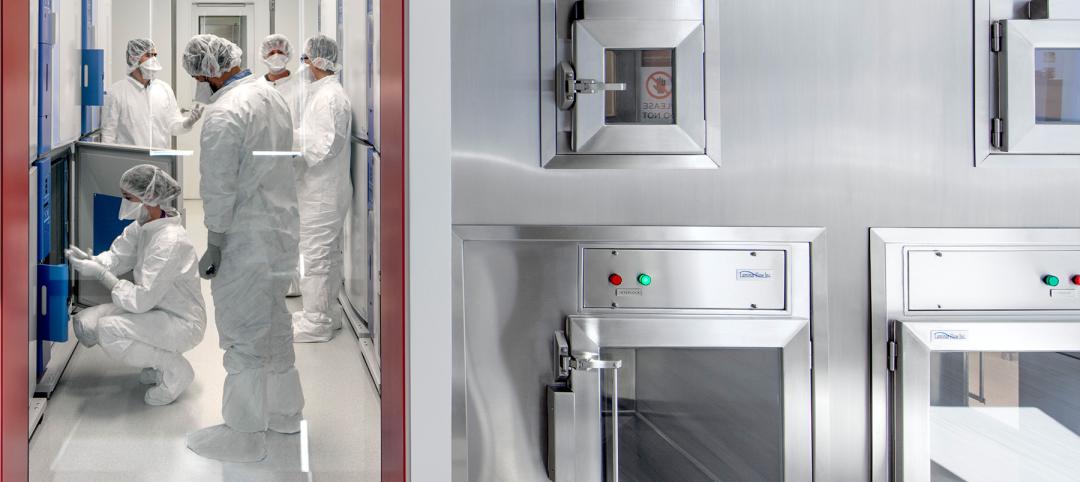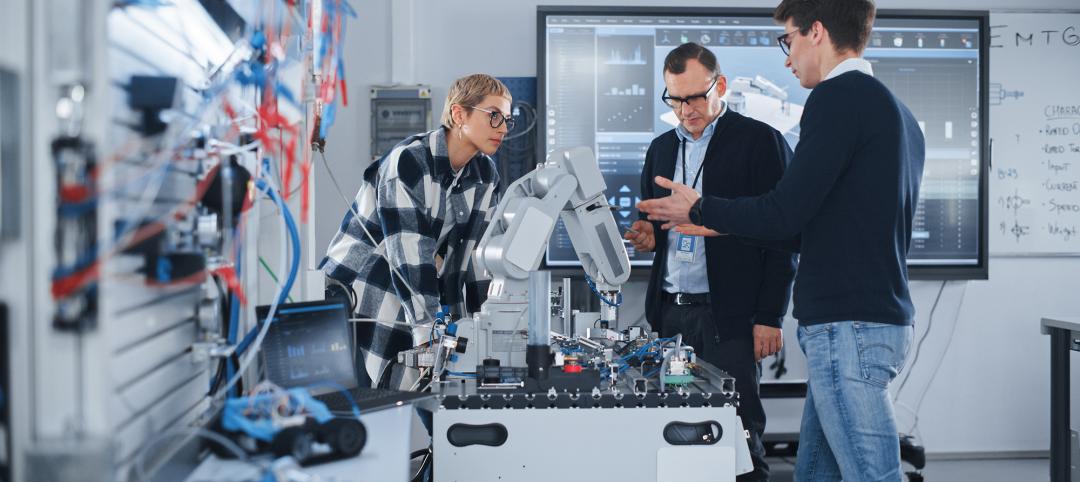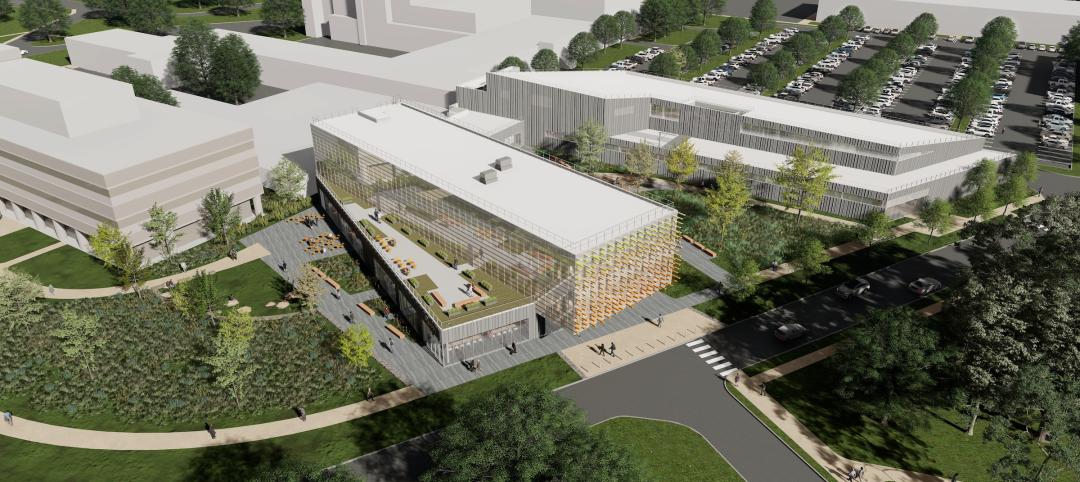GENESIS Marina, an expansive laboratory and office campus in Brisbane, Calif., is the world’s first Total Resource Use and Efficiency (TRUE)-certified construction endeavor. The recently completed project consisted of three buildings totaling about 560,000 sf.
The certification recognizes projects that achieve outstanding levels of resource efficiency through waste reduction, reuse, and recycling practices. The project diverted 98.4% of construction waste from landfills, an achievement that includes preventing waste from being sent to waste-to-energy facilities.
TRUE certification is administered by Green Business Certification Inc. (GBCI), part of the US Green Building Council (USGBC) family. Construction manager Webcor partnered with All About Waste, a zero waste and circular economy consultant, to achieve the certification.
The certification process involved a comprehensive evaluation of waste reduction practices including reduced packaging, the use of recycled products, and innovative end-of-life solutions for materials. Webcor’s approach emphasized collaboration across all levels of the project team and with subcontractors and partners to achieve the project’s waste reduction goals.
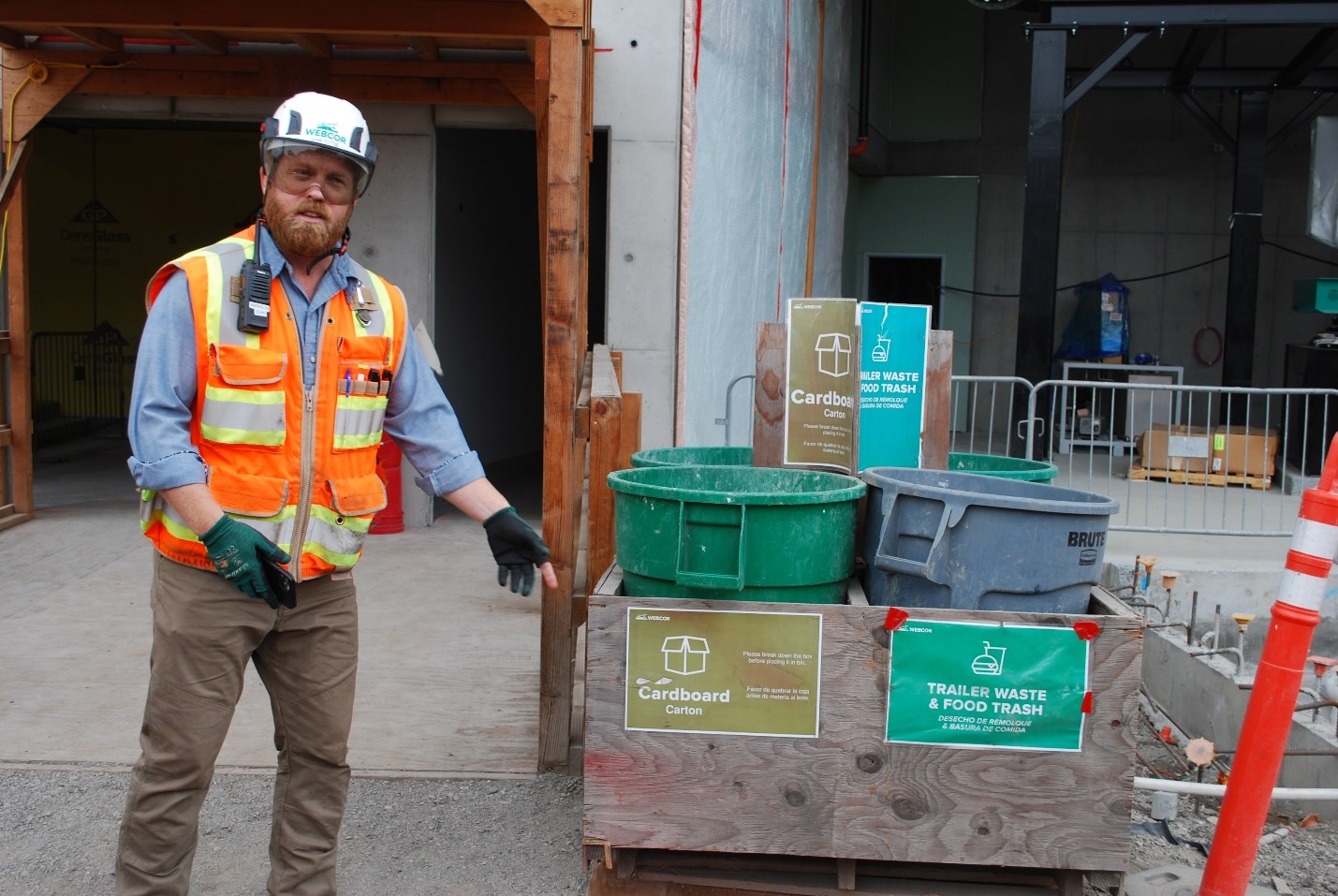
"TRUE emphasizes waste reduction before any waste is created on the jobsite,” says Webcor Sustainability Director Sarah Rege. “This significantly reduces the volume of waste and emissions from transportation, benefiting local air quality and supporting local businesses.”
GENESIS Marina was awarded TRUE Gold in February 2024.
“We are proud to see Webcor’s forward-thinking efforts at GENESIS Marina and for initiating a broader conversation about the feasibility and benefits of zero waste and sustainability in construction,” said Joe Marconi, a Partner at Bain Capital Real Estate. “We are committed to continuing these impactful practices and positively contributing to the built environment in the years to come.”
Owner and/or developer: Phase 3 Real Estate
Architect: Skidmore, Owings, & Merrill (SOM)
MEP engineer: Meyers+ Engineers
Structural engineer: Paradigm Structural Engineers
General contractor/construction manager: Webcor
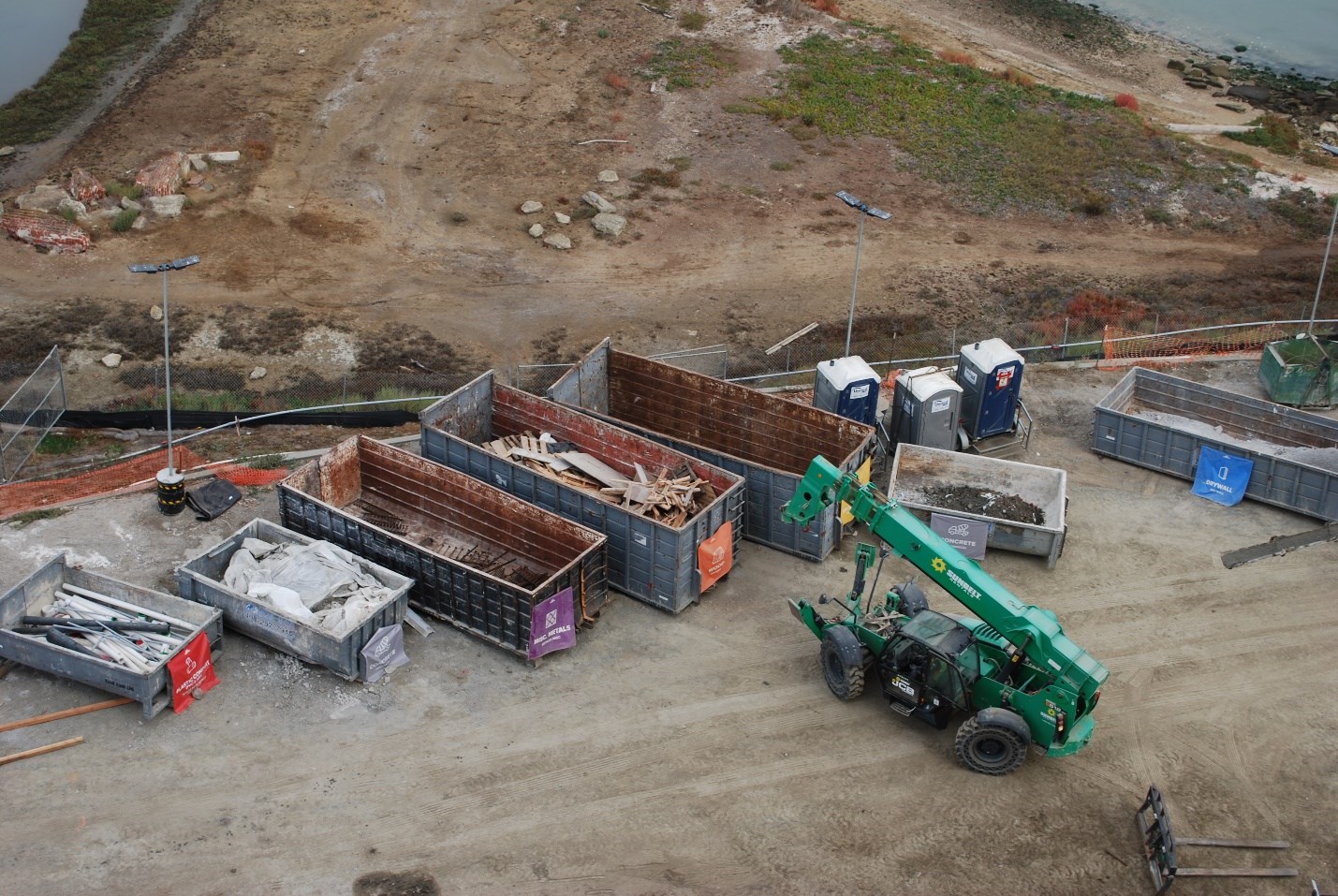
Related Stories
Laboratories | Oct 23, 2024
From sterile to stimulating: The rise of community-centric life sciences campuses
To distinguish their life sciences campuses, developers are partnering with architectural and design firms to reimagine life sciences facilities as vibrant, welcoming destinations. By emphasizing four key elements—wellness, collaboration, biophilic design, and community integration—they are setting their properties apart.
Laboratories | Oct 2, 2024
Trends in scientific research environments: Q&A with Flad's Matt McCord
As part of an ongoing series, Matt McCord, AIA, NCARB, LEED AP BD+C, Associate Principal with Flad Architects, discusses the future of the scientific workplace.
Laboratories | Sep 27, 2024
Traditional lab design doesn't address neurodiverse needs, study finds
A study conducted by ARC, HOK, and the University of the West of Scotland, has revealed that half (48.1%) of all survey respondents who work in laboratory settings identify as neurodivergent.
Laboratories | Sep 26, 2024
BSL conversions: A cost-efficient method to support high-containment research
Some institutions are creating flexible lab spaces that can operate at a BSL-2 and modulate up to a BSL-3 when the need arises. Here are key aspects to consider when accommodating a rapid modulation between BSL-2 and BSL-3 space.
Higher Education | Sep 18, 2024
Modernizing dental schools: The intersection of design and education
Page's John Smith and Jennifer Amster share the how firm's approach to dental education facilities builds on the success of evidence-based design techniques pioneered in the healthcare built environment.
Great Solutions | Jul 23, 2024
41 Great Solutions for architects, engineers, and contractors
AI ChatBots, ambient computing, floating MRIs, low-carbon cement, sunshine on demand, next-generation top-down construction. These and 35 other innovations make up our 2024 Great Solutions Report, which highlights fresh ideas and innovations from leading architecture, engineering, and construction firms.
Laboratories | Jul 3, 2024
New science, old buildings: Renovating for efficiency, flexibility, and connection
What does the research space of the future look like? And can it be housed in older buildings—or does it require new construction?
Mass Timber | Jun 26, 2024
Oregon State University builds a first-of-its-kind mass timber research lab
In Corvallis, Oreg., the Jen-Hsun Huang and Lori Mills Huang Collaborative Innovation Complex at Oregon State University aims to achieve a distinction among the world’s experimental research labs: It will be the first all-mass-timber lab meeting rigorous vibration criteria (2000 micro-inches per second, or MIPS).
Healthcare Facilities | Jun 18, 2024
A healthcare simulation technology consultant can save time, money, and headaches
As the demand for skilled healthcare professionals continues to rise, healthcare simulation is playing an increasingly vital role in the skill development, compliance, and continuing education of the clinical workforce.
Laboratories | May 24, 2024
The Department of Energy breaks ground on the Princeton Plasma Innovation Center
In Princeton, N.J., the U.S. Department of Energy’s Princeton Plasma Physics Laboratory (PPPL) has broken ground on the Princeton Plasma Innovation Center (PPIC), a state-of-the-art office and laboratory building. Designed and constructed by SmithGroup, the $109.7 million facility will provide space for research supporting PPPL’s expanded mission into microelectronics, quantum sensors and devices, and sustainability sciences.


